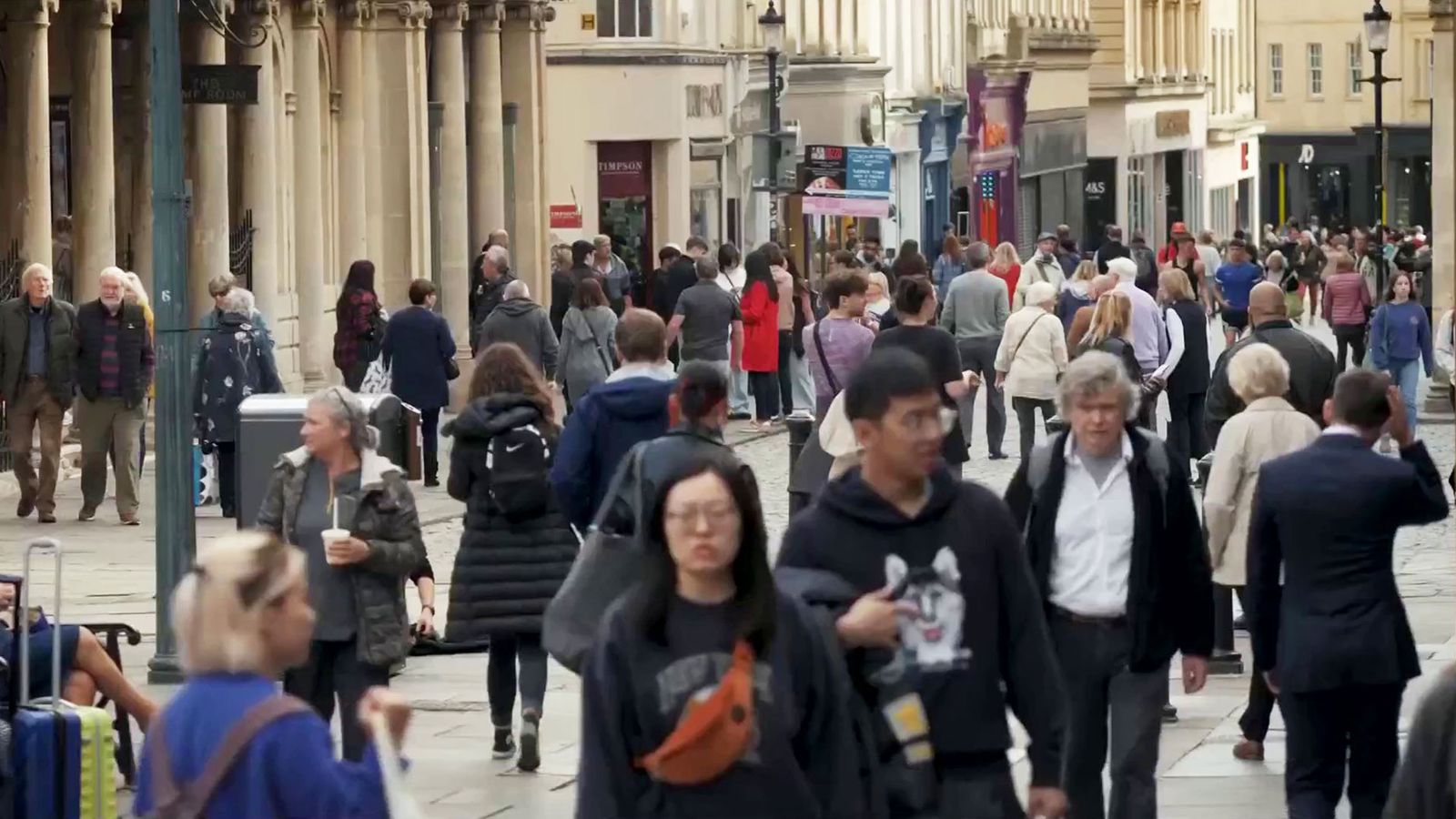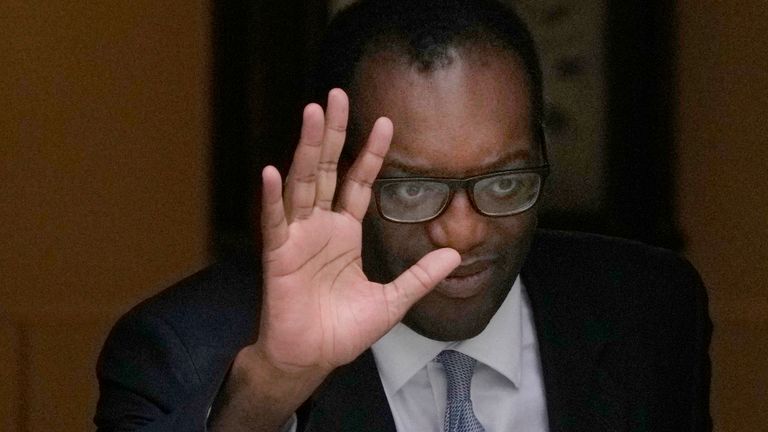The latest official data on the state of the public finances and consumer spending makes for grim reading as the country awaits its next leader, with financial markets reflecting renewed jitters over the contenders for PM and the economy.
The Office for National Statistics (ONS) reported that public sector net borrowing came in at £20bn last month – £3bn more than economists had expected.
The report pointed to a record debt interest payment total of £7.7bn for the month of September – much of which could be attributed to rising inflation as a quarter of payments on the £2.4trn debt mountain are linked to the RPI measure.
Government spending increased by £5.8bn to £79.3bn as a result of the jump in interest, the ONS said.
It separately revealed that retail sales volumes fell 1.4% on the previous month, meaning that “consumers were now buying less than before the pandemic”.
The decline was far worse than the 0.5% decline that economists had forecast.
It was likely to reflect not only the deteriorating cost of living crisis that has squeezed consumer budgets this year but also the impact of store closures for the funeral of the Queen.
The borrowing figures cover the start of Kwasi Kwarteng’s short and turbulent tenure as chancellor.
He was appointed on 6 September before being fired weeks later following the market chaos that followed the tax giveaway mini-budget on 23 September.
While the contentious measures have now been largely overturned by the new Chancellor Jeremy Hunt, the immediate backlash raised the interest rates demanded by investors to hold UK government debt.
That has fed into fixed rate mortgage costs since.
It also led to the pound falling to a record low against the US dollar last month – with continued sterling weakness adding to the country’s import costs and therefore inflation.
The pound was trading more than a cent lower versus the US currency, just below $1.11, at lunchtime on Friday though later recovered and hit $1.12 again just before 4pm on some apparent dollar weakening.
Bond yields also reflected investor concerns about the political and economic crisis.
They include doubts over whether the the chancellor’s medium-term fiscal plan, aimed at restoring market confidence in the UK’s public finances, will take place on Halloween as scheduled or be delayed.
That is because its contents will now fall under the oversight of a new PM – which could yet be Boris Johnson – following the resignation of the ill-fated mini-budget’s architect, Liz Truss.
The Tories expect their new leader to be in place in a week’s time – days before Mr Hunt is due to outline how he plans to balance the books while also maintaining a measure of support for struggling households and businesses.
A survey by the City watchdog found that almost 32 million people, or 60% of adults, were already finding it a heavy burden or somewhat of a burden to pay their bills because of the growing cost of living crisis.
The Financial Conduct Authority’s financial lives survey, which was taken between February and June, said the total was up six million from 2020, when the economy went into lockdown to fight the COVID-19 pandemic.
Another closely watched survey, compiled by GfK, found that confidence among British consumers remained close to the lowest level on record last month.
The chancellor said in the wake of the ONS data: “Strong public finances are the foundation of a strong economy.
“To stabilise markets, I’ve been clear that protecting our public finances means difficult decisions lie ahead.
“We will do whatever is necessary to get drive down debt in the medium term and to ensure that taxpayers’ money is well spent, putting the public finances on a sustainable path as we grow the economy.”


